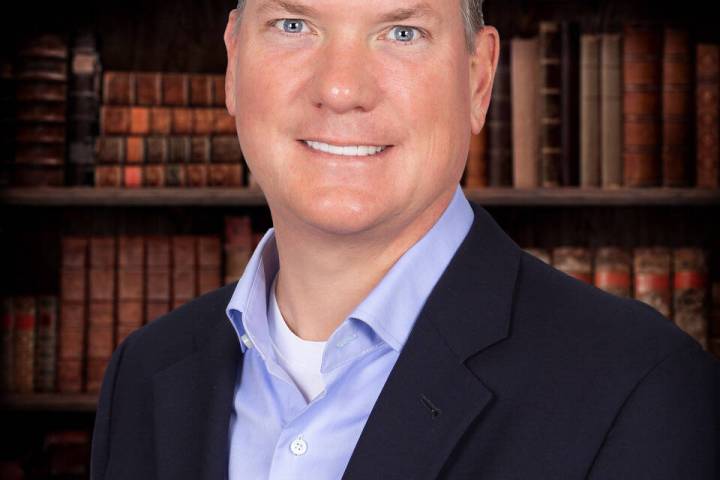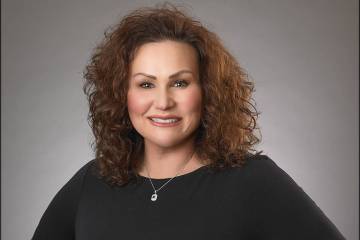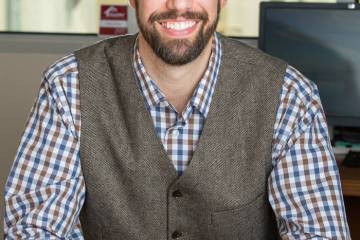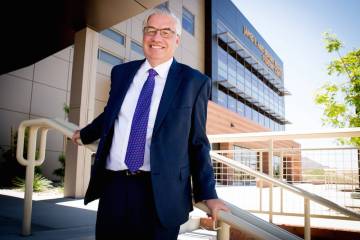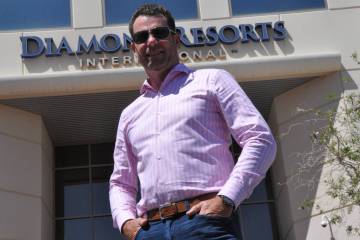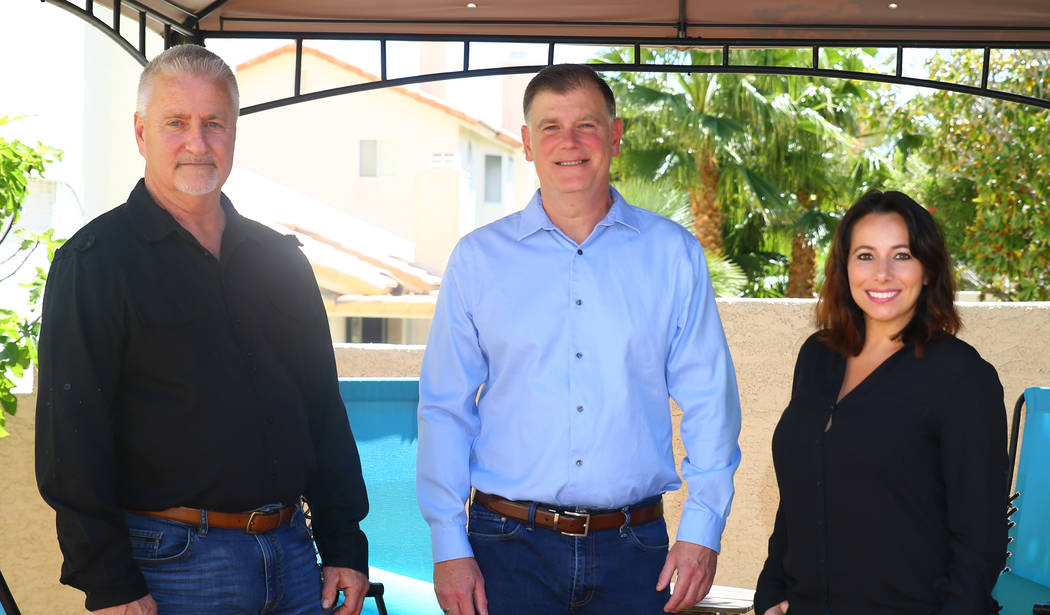
Dennis Hofmaier has managed successful local businesses in the financial and real estate sectors, but his personal struggles led him to found Higher Path Living, a program that offers an innovative approach to addiction recovery.
Q: What prompted you to start this business?
A: It stemmed from my personal experiences. I had been sober for about 20 years. My drug of choice is alcohol. I had been active with the 12-step program, Alcoholics Anonymous, for about 10 years. And my belief system began to change, the belief that people need (to have) an outside power in order to stay sober. Even though I had worked with 12 steps and sponsored people, it was just not resonating with me internally.
Over the years, I stopped going to as many meetings. I had some personal issues come up in 2007 and 2008 — a divorce and the market crash. I owned businesses in both the real estate and financial markets. I had four kids in college at the same time. I stayed sober through all of that, but by 2011, I just became tired. It was so much stress to handle that I thought I could have a drink and relax, because I remained sober through all of that.
I started drinking socially for six months. Then my drinking started to become daily. After time, it was beginning to affect relationships. I did my best to hide it, but my friends were starting to say, “Hey Dennis, you are starting to drink quite a bit.” My children had two interventions with me, because they saw a dad who is not the same dad they grew up with.
Q: You sought treatment at that point?
A: I went into a treatment center, a program that was like many other drug and alcohol treatment centers. I wanted to really understand addiction. Not only for myself, but for helping to understand all the young people there — the majority were ages 19 to 25. I would talk with them, and they would tell me they have been through treatment five, seven, 15 times. And I was puzzled.
I started doing research on my own about evidence-based recovery. I began to explore other recovery support services, such as SMART Recovery (Self Help Addiction Recovery), which is based on cognitive behavioral therapy and rational behavioral management therapy. And I explored Refuge Recovery, which is an Eastern approach to recovery.
Q: When did you open Higher Path Living?
A: It was launched in 2016. We had a residence in Las Vegas, and we just moved to a second residence about a half mile away.
Q: How many guests can the facility accommodate?
A: We are legally allowed to accommodate 10, but we only accommodate five. We have a minimum 30-day stay, but most guests are staying an average of three or four months.
Q: What has been the response from participants?
A: The feedback from guests has been phenomenal. It is interesting — when I opened the doors, I thought we were going to be getting people coming from treatment centers with 30 to 90 days of sobriety. We are actually getting people very early in their sobriety and getting calls from people in active addiction.
We work with three addictionologists in town, MDs focused only on addiction. We refer (prospective guests) to the doctor. Whatever the addictionologist recommends, we follow their protocol. If the addictionologist says, “Yes, you are at a point now where you can go into Higher Path Living,” we accept the person. We go through an application process and an interview process to make sure that that person is able to be here.
Q: Is gambling addiction a larger problem, locally, than is commonly acknowledged?
A: Yes. Gambling addiction is one of the secret addictions. And it is a common cross-addiction – 40 percent of people with gambling issues also have issues with alcohol. The two go hand in hand. Gambling addiction also tends to be at a much higher rate with women than it is with men.
Q: And what about people addicted to prescription medication? How do you believe the program applies to them?
A: They do not consider themselves addicts, and the 12-step language is very much a turn-off for them. We bypass all that by saying this is for people who have problems with substances. We don’t use concepts of good or bad, right or wrong. We do not judge. The way we look at it is: Does using substances serve me? Or does it not serve me? Is it a healthy way to live? Is it not a healthy way to live? We encourage them to employ that kind of thinking, not only to substances, but in all situations in their lives. It is a very Eastern approach. But it is a kind of thinking that works really well, because we take all judgment out of it.
Q: Many program principles you talk about seem to have parallels with Buddhism-based dharma.
A: Refuge recovery is a Buddhist approach. It is not about converting to Buddhism, but it is based on the idea that addiction causes suffering. If you want to end the addiction, you need to change your behavior. It focuses on DBT — dialectic behavioral therapy — which really is meditation and mindfulness. These alternative programs just resonated with me a lot more than 12-step.
Q: Is Higher Path Living your primary focus, or are you engaged in multiple businesses?
A: I do my other business (Securities Research Co.), but that other business is being run by other people. So I am engaged in it, but my primary focus is Higher Path Living. It consumes about 90 percent of my time.
Q: How challenging has it been, from a business standpoint?
A: Our approach is so different, and I was so nervous when we first launched the business. I thought we would have people banging down the door to come in. That was not the case. We have shifted our outreach efforts to the professionals in the community. Because it is the professionals who are working with these people on a day-to-day basis who get an understanding of what we are doing. And word-of-mouth is spreading.
I was driving to the house the other day, just after doing my taxes. I was thinking, “Oh, my God.” I am the sole investor, and I realized just how much money I have put in to get this business up and running. Then the thought came to me, “What price can you put on one person’s sobriety?” And the answer I came up with is “It is priceless.”
It does not matter how much money I put into the business, the financial hit I took getting it started. Because there is no price I can put on the sobriety of that person. Because the sobriety of that person not only affects that person — it affects their significant other, the relationship with their children — and the ripple effects of them being sober will go generations. It will spread beyond what they can possibly imagine.
When I have a challenging day here — and it is not all sunshine and rainbows — I just remind myself of people that we have helped and where they are at now. The effect that this is going to have beyond our guests. That gives me motivation every single day.
Q: Do you plan to expand this platform to other markets?
A: We are now getting the model absolutely right, because this is a very different type of recovery support and sober living process than anything else that is been done in this country. My goal is to really develop it here in Las Vegas, get it profitable — which it finally is.
Then expand the business to Phoenix, Scottsdale, up to the Pacific Northwest and then out to the East Coast.
Q: Has this process benefited you on your own path to health?
A: Absolutely. When people come in, the first week or two was very difficult. We spent a lot of time — myself and the other recovery coaches — working with them. By about 30 days, their heads start clearing, and we are able to talk more about what is really going on in their life.
It’s not just the guests — the families tend to become very involved in Higher Path Living, too. What helps me and really inspires me are the results. People who have been addicted anywhere from seven to 30 years, seeing their lives change, and being able to be a part of that, it just fills me with joy. Seeing and hearing from their family about the change in this person, I cannot tell you how much happiness and joy it brings to me on a personal level.
Q: This endeavor appears to be as much a passion for you as a business opportunity. What are some of your interests?
A: My primary interest is creating things. The thing that I have that is unique — and I think it has helped me in various aspects of my life — is that I can see, envision and feel things as I am creating them.
I am not an artist, a painter or a writer, but artists often say their creation does not come from them, but through them. They are inspired. Regardless of what I am doing, there is a knowing inside of me that this is what I needed to do right now.
It would be very egotistical to say that Higher Path Living was divinely inspired, but I really feel — based on the guests that we’ve had and success that we have had — that we are going to be very successful helping people here for a long time.

